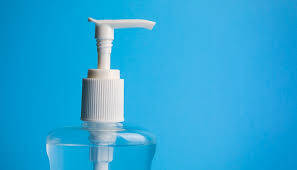
The Malawi Bureau of Standards (MBS) has come under fire for certifying rectified alcohol and hand sanitizer which is allegedly substandard and harmful to people.
This is according to a letter by Health And Civic Research Initiative Limited (HCRI LTD) which has been signed by its board chair Dr YB Mlombe and the board secretary Dr Charles Dzamalala who are requesting answers from MBS Director.
HACRI Limited letter which has been seen by this publication, shows that the development follows a recent report authored by MBS’s Director of Testing Services Stephen Kuyeli who certified rectified alcohol and hand sanitizer from Press Cane Limited (PCL.
The two pathologists in the letter said it is shocking that MBS allowed PCL to sell their two products despite results from a South African laboratory indicating that the products had 140 parts per million (PPM) out of the country’s standard which of 50 parts per million.
Dr Mlombe and Dr Dzamalala said PCL’s products are dangerous and impure to people and the two wondered why Kuyeli lied to Malawians by releasing a report which showed that PCL products were standard.
“Our reports showed that the ethanol used in Malawi is dangerously impure and a sample that was sent to a South African laboratory showed that its methanol impurity goes to 140 PPM against the recommended level or standard of 50 PPM.
“We write to request a follow up on the PEST/20/AX/06 as provided by MBS as the custodian of Standards in the country. It is desirable that MBS procedure carry the trust of all of us and are accurate,” reads part of the letter to MBS director.
HACRI Limited has since requested the formation of a special committee with members from HACRI Limited, MBS, Chancellor College, PCL and Ethco Limited which they say should conduct a retest at Chancellor College laboratory with an aim of understanding the actual standard of PCL’s products.
HACRI Limited further states that: “It is in the interest of public health to ensure that dangerous impurities such as methanol, are not consumed by humans.”
Meanwhile, the Malawi Bureau of Standards is yet to comment on the matter.














